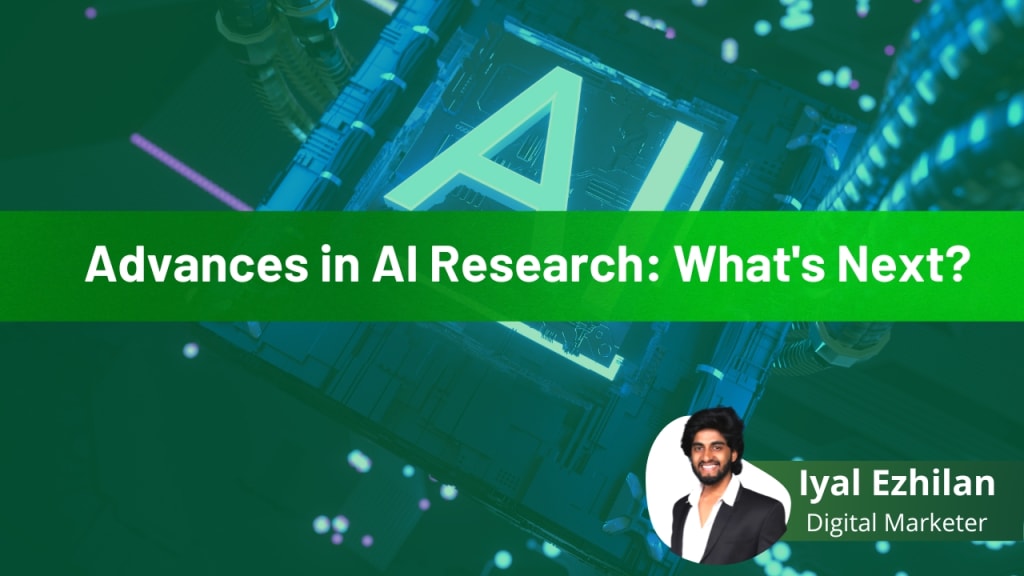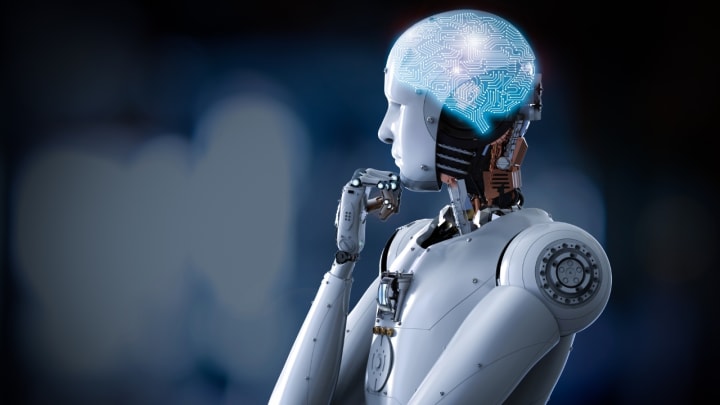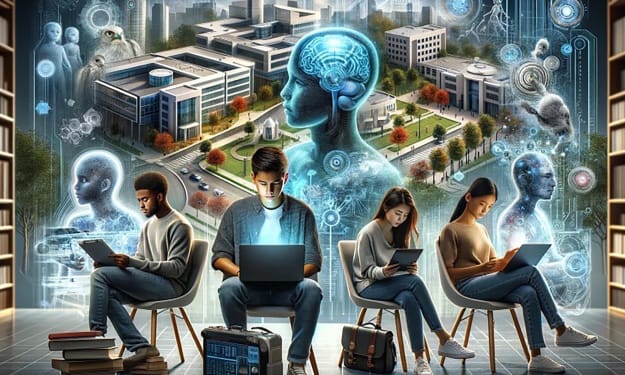Advances in AI Research: What's Next?
AI revolution

Introduction
Artificial Intelligence (AI) is the simulation of human intelligence in machines that are programmed to think and learn like humans.
AI systems can be trained to perform various tasks, including image and speech recognition, decision-making, language translation, and more.
AI systems can also be designed to learn from experience and adapt to new situations, like human beings.
Types
Reactive machines: These systems can only react to the present and cannot use past experiences to inform future decisions.
Limited memory: These systems can remember past experiences but do not use them to inform future decisions.
Theory of mind: These systems can understand and use emotions and mental states to inform decision-making.
Self-aware: These systems have a sense of self and can understand their mental states.
The most common type of AI currently in use is "narrow AI," designed to perform specific tasks, such as image recognition or language translation.
"General AI," which can perform any intellectual task that a human can, is still in the early stages of development.
AI is used in various industries and applications, including healthcare, finance, transportation, and customer service.
It is also used to improve and automate many business processes, such as marketing and sales.

Best Artificial Intelligence tool
TensorFlow: An open-source machine learning framework developed by Google.
Python scikit-learn: A free, open-source machine learning library for the Python programming language.
Keras: A high-level neural networks API written in Python capable of running on top of TensorFlow.
Microsoft Azure Machine Learning Studio: A cloud-based platform for building, deploying, and managing machine learning models.
IBM Watson: A cloud-based artificial intelligence platform that provides a wide range of services, including natural language processing and machine learning.
RapidMiner: A data science platform that provides a wide range of machine learning, data mining, and text mining capabilities.
Alteryx: A data science platform for data preparation, blending, and advanced analytics.
KNIME: Open-source data integration and analytics platform.
Deep learning libraries such as PyTorch, Caffe, and Caffe2
H2O.ai: An open-source platform for machine learning and deep learning.

Impact of artificial intelligence in the industry?
Artificial Intelligence (AI) has the potential to impact many industries and change the way businesses operate significantly. Some of how AI is already impacting industries include the following:
Automation: AI systems can automate many tasks that humans, such as data entry and analysis, customer service, and manufacturing, previously did.
This can lead to increased efficiency and cost savings for businesses.
Decision-making: AI systems can analyze large amounts of data and provide insights that can inform business decisions.
This can lead to more informed and accurate decision-making.
Personalization: AI can personalize individual customers' products, services, and marketing efforts.
This can lead to increased customer satisfaction and loyalty.
Predictive maintenance: AI can predict when equipment needs maintenance, which can help reduce downtime and costs.
Fraud detection: AI can be used to detect and prevent fraud in industries such as finance, insurance, and healthcare.
Healthcare: AI can improve medical diagnosis, drug development, and patient monitoring.
Agriculture: AI can improve crop yields, predict weather and pests, and optimize irrigation.
Robotics: AI is used to control robots in manufacturing and logistics, which can increase efficiency and reduce labour costs.
Supply chain: AI can be used to optimize logistics and inventory management, which can reduce costs and improve customer service.
Self-driving cars: AI can control self-driving cars, increasing safety and reducing the need for human drivers.
Overall, AI has the potential to bring many benefits to businesses and industries, including increased efficiency, cost savings, and improved decision-making.
However, it also poses challenges like job displacement, data privacy, and security.

Conclusion
In conclusion, Artificial Intelligence (AI) is a rapidly growing technology that has the potential to impact many industries significantly.
AI systems can automate tasks, improve decision-making, personalize products and services, and more.
Industries such as healthcare, finance, transportation, and customer service are already using AI to improve operations and increase efficiency.
However, AI poses challenges like job displacement, data privacy, and security. Businesses and industries must consider these challenges and develop strategies to address them as they adopt AI technology.
Additionally, stakeholders must keep an eye on the latest advancements and developments in AI to stay current and make the most of the technology.
About the Creator
iyal ezhilan
I help to transform your business and reach new audiences through targeted digital marketing efforts, So I'm here to help you with my articles.
I'm Iyal Ezhilan, a digital marketer who works with a wide range of clients in multiple domains.






Comments
There are no comments for this story
Be the first to respond and start the conversation.